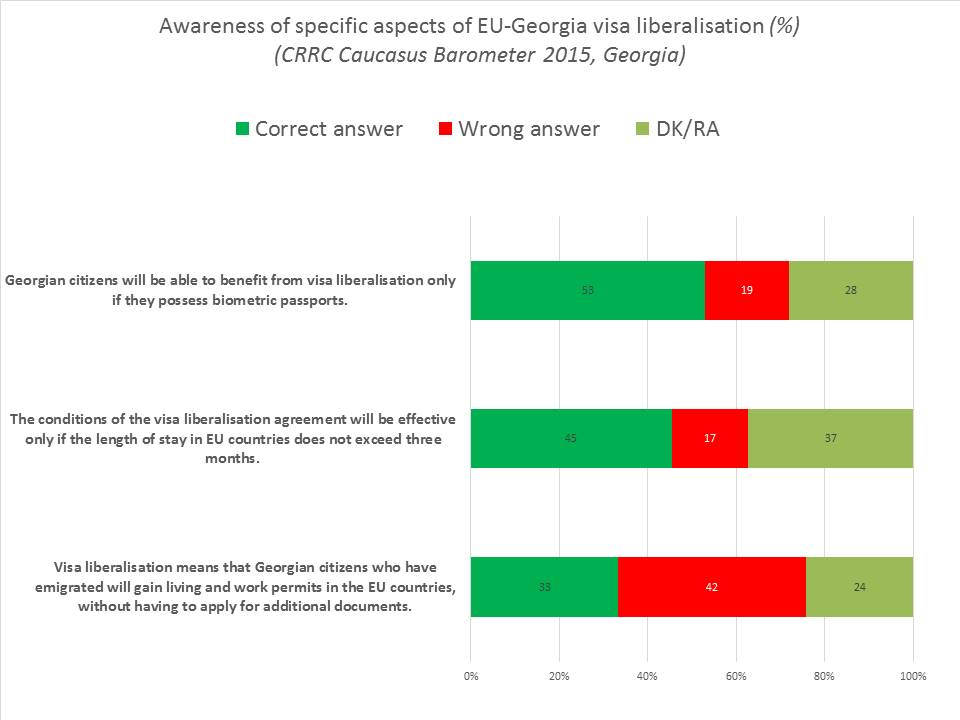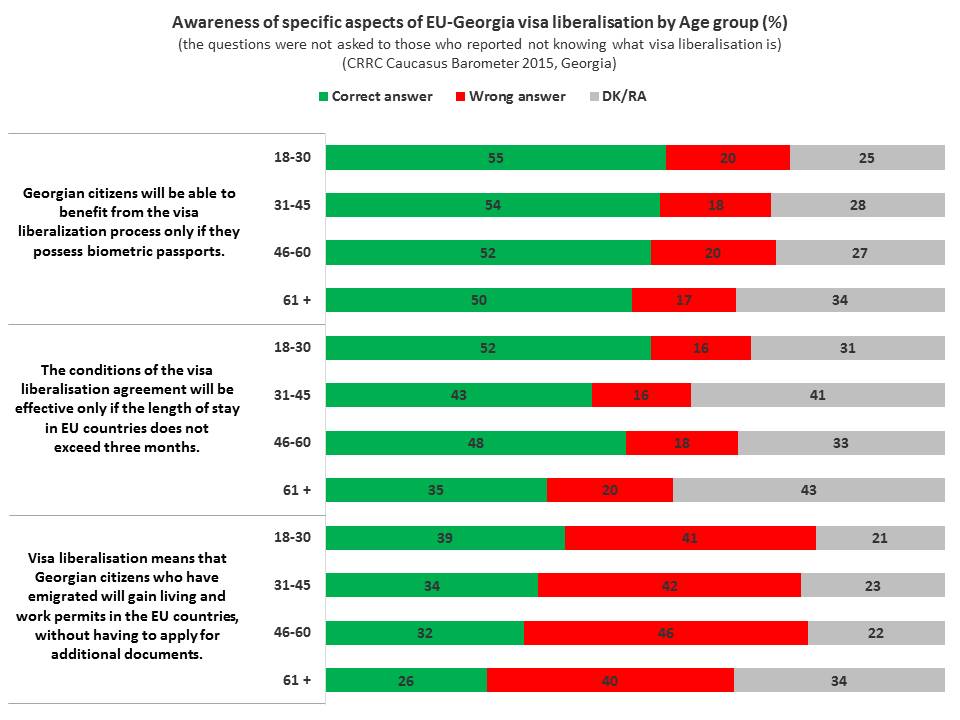Although those living in Tbilisi tend to have slightly better knowledge compared to those living in other cities/towns or villages, the difference is not striking, and it cannot be claimed that the Tbilisi population is very well informed about specific aspects of visa liberalisation.
There are, though, interesting variations in knowledge by age. While Georgians of all age groups respond quite similarly to the question about whether or not visa liberalisation conditions apply if a person does not hold a biometric passport, younger Georgians tend to be better informed that the visa liberalisation agreement will be effective only if the length of stay in EU countries does not exceed three months and that visa liberalisation does not actually mean that Georgian citizens who have already emigrated will gain living and work permits in EU countries.
These findings strongly suggest that an awareness raising campaign about what the visa liberalisation process with the EU actually implies is crucial. A successful campaign will help to ensure that the population of Georgia has adequate expectations of it and makes informed migratory decisions to the EU countries once visa liberalisation enters into force.










